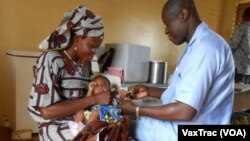Governments in developing countries must make access to postnatal care a priority to significantly reduce the mortality rates of women and infants, the World Health Organization says in a new report.
"Every day, there are 800 women dying from complications of pregnancy and childbirth," said Etienne Langlois, the study’s lead author and technical officer at the WHO's Alliance for Health Policy and Systems Research. Each year, an estimated 3 million newborns die, he added.
The study assesses inequities that make it difficult for women to access services around the world. Data from 15 countries in the Middle East, sub-Saharan Africa, Latin America, South Asia and Southeast Asia, including China, connect the dots between the lack of postnatal care and the consequent deaths of mother and child.
"Most of those maternal and neonatal deaths actually occur in the postnatal period," Langlois said. "So, this is a very important burden for public health systems and 99 percent of those deaths actually occur in low- and middle-income countries."
In an interview with VOA, he explained that socioeconomic, geographic and demographic inequities make it difficult for women, especially in poor, rural communities, to access and use life-saving postnatal care interventions.
Progress has been made in reducing maternal deaths. For many years, figures hovered at around 500,000 a year. Thanks to the push given by the United Nations Millennium Development Goals, maternal deaths have fallen 45 percent to 289,000 a year. However, this is still well below the MDG goal of cutting maternal deaths by three-quarters by 2015.
While some progress has been made in sub-Saharan Africa, the region remains far off the mark, with one in 38 maternal deaths. Langlois attributed most of these preventable deaths to the lack of postnatal care.
"What we found is that coverage is the lowest in sub-Saharan Africa. So, we have countries like the Democratic Republic of Congo, for instance, where we only have 35 percent of women who are actually accessing postnatal care services," Langlois said. "So, almost two-thirds of women do not have any postnatal contacts after childbirth."
The problem "is also quite prevalent in other regions as well," he added.
Eliminating or reducing user fees, especially at the point of service, is one of the key solutions for persuading women to seek postnatal care, the study found.
Another is establishing community-based outreach programs. The study suggested local women could be trained to identify problems, to educate poor rural women about reproductive health and to explain the importance of postnatal care.




